SACRED SALMON
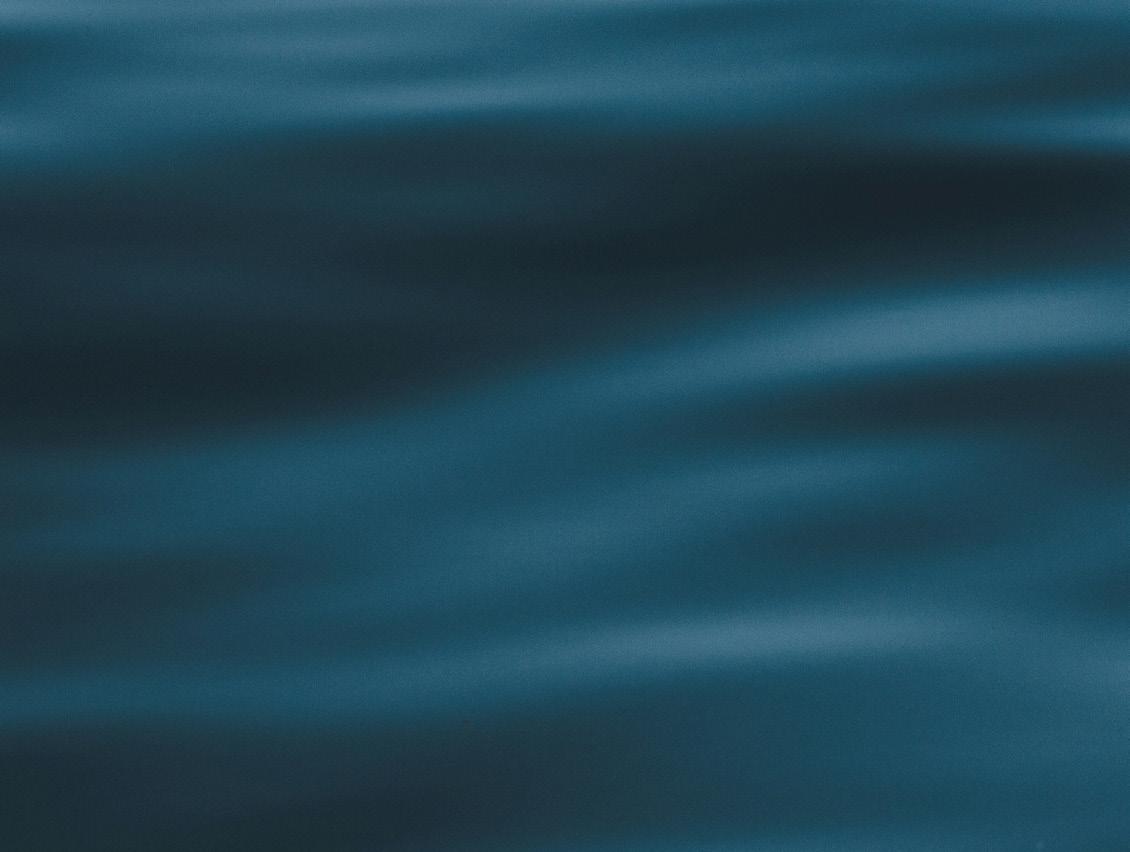
“ To go on pilgrimage is not simply to visit a place to admire its treasures of nature, art or history. To go on pilgrimage really means to step out of ourselves in order to encounter God where God has revealed itself, where God’s grace has shone with particular splendor and produced rich fruits of conversion and holiness among those who believe.” —Pope Benedict XVI
IN THE JUBILEE YEAR OF PILGRIMAGES OF HOPE
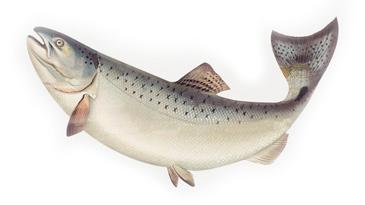
RESTORING JUST & RIGHT RELATIONS
“ Indigenous people are not just one minority among many. They are the principal dialogue partners, those from whom we have the most to learn, to whom we need to listen out of a duty of justice, and from whom we must ask permission before presenting our proposals.”
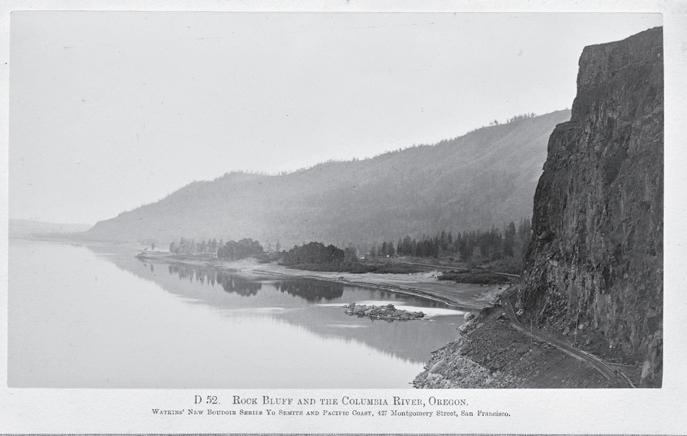
1. INTRODUCTION
In this Jubilee Year of Hope—proclaimed by our beloved late Pope Francis—we are called to walk as pilgrims of hope, grounded in faith and committed to justice. 2025 marks the 10th anniversary of Laudato Si’ and the 800th anniversary of St. Francis’ Canticle of the Creatures. This year is not only a time of spiritual renewal but also a profound invitation to reimagine our relationships with God, one another, and the earth.
The Sacred Salmon Pilgrimage is one expression of this call and the latest action steps at the center of the IPJC’s Sacred Salmon Campaign. This toolkit and action is part of a nationwide movement—Pilgrimages of Hope for Creation—that invites Catholics to journey not to distant shrines, but into the heart of their own communities, landscapes, and ecological struggles. Following Pope Francis’ urgent reminder in Laudate Deum to prioritize the Care for Creation, we invite you to become accountable to our common home and wholeheartedly lead community action. These pilgrimages are sacred acts of faithful resilience, rooted in the biblical tradition of Jubilee, which calls for the forgiveness of debts, the return of land, and the restoration of just and right relations.
In the Pacific Northwest, IPJC is inviting communities to host a Sacred Salmon Pilgrimage to respond to our local context and place. These pilgrimages are aimed at walking in solidarity with Indigenous communities who have long stewarded the sacred salmon and the rivers they depend on. Salmon are more than a keystone species—they embody interconnectedness, ancestral Indigenous wisdom, and restore the balance
of life in our bioregion. A Sacred Salmon Pilgrimage is a journey of prayer, humble learning that creates space to listen and join our Indigenous brothers and sisters in shared community action. We are called to honor the sacred trust bestowed upon us and support tribal-led ecosystem restoration. This community call emerges from our ongoing partnership with Se’Si’Le, Nimiipuu|Protecting the Environment|Nez Perce, Native Land Acknowledgements | Nonprofit Giving Voice, as well as Save Our Wild Salmon.
This toolkit is designed to support your pilgrimage and associated community action—whether you are walking along a river, creek or ocean shore, leading prayer by a dam, organizing a community event to honor the sacredness of salmon, or engaging in environmental advocacy. It offers prayers, reflections, educational resources, and action steps to help you deepen your spiritual commitment and respond to the urgent cries of the Earth and the poor, especially as it relates to our local community here.
As you engage with this toolkit, we invite you to reflect on the deeper meaning of pilgrimage in this Jubilee Year of Hope. Let this pilgrimage be a sacred act of resistance and renewal. Let it be a testament to the enduring power of faith, community, and creation. And may it lead us all toward a future of justice, healing, and hope through action. ¡Buen Camino!
We are all called to become protectors of sacred lands, waters, and creatures!” Julian Matthews of the Nimíipuu (Nez Perce). To listen to the podcast: Protecting the Sacred Salmon and Rivers: A Nimiipuu Perspective - audio here.
2. WHAT IS A PILGRIMAGE?
A spiritual and physical journey that facilitates a transformational encounter with the Sacred and can provide consolation in times of crisis.
KEY COMPONENTS OF A SACRED SALMON PILGRIMAGE
In this Jubilee Year of Hope, this call to walk together in hope and solidarity with our community partners is an act of resistance to the climate crisis and impending salmon and orca extinction in our bioregion if we fail to act together to honor and protect them and our shared ecosystems. Our lives and those living in our shared waters depend on our kinship and mutual responsibility.
GOAL: Ten Pacific Northwest Catholic communities lead Sacred Salmon Pilgrimages in the Jubilee Year of Hope 2025, ideally during the Season of Creation, September 1st – October 4th!
PILGRIMAGE COMPONENTS
REFLECTION
ENCOUNTER
PRAYER
COMMUNITY ACTION
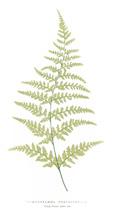
GUIDING QUESTIONS:
How is nature a source of life, renewal, and consolation? How does your community want to tend to it and protect it?
How could acting in solidarity with Indigenous tribes transform our local Churches?
More on Salmon Extinction, Ecological and Cultural Biodiversity Loss, and Endangered Native Food Sovereignty:
• Extinction Risk of Chinook Salmon Due to Climate Change | NOAA Fisheries
• United States Government’s Analysis of the Impacts of Federal Dams on Columbia Basin Tribes Restores the Rule of Law and Supports Immediate Action to Prevent Salmon Extinction, Nez Perce Tribe Says (2024)
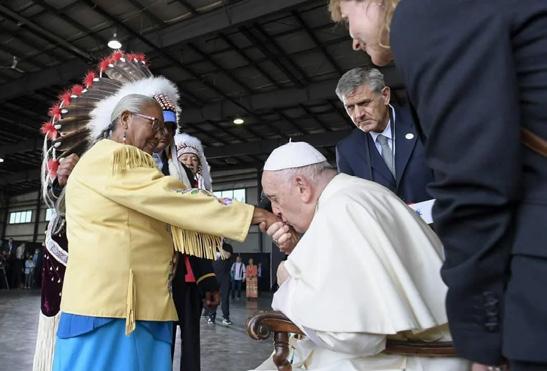
“This interplay of hope and patience makes us see clearly that the Christian life is a journey calling for moments of greater intensity to encourage and sustain hope as the constant companion that guides our steps towards the goal of our encounter with the Lord Jesus…
Pilgrimage is of course a fundamental element of every Jubilee event. Setting out on a journey is traditionally associated with our human quest for meaning in life. A pilgrimage on foot is a great aid for rediscovering the value of silence, effort and simplicity of life.”
— Pope Francis, Spes Non Confundit
REFLECTION
This opportunity to reflect, encounter, pray, and lead community action together is an open invitation to transformation as individuals and members of the Body of Christ. We invite you to reflect on interdependance with other species and examine your community’s relationship with nature and surrounding ecosystems on the 800th anniversary celebration of St. Francis of Assisi’s the Canticle of Creation.
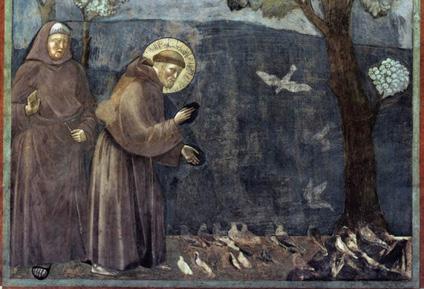
St. Francis, man wounded by love, crucified in body and in spirit, we look to you, marked with the holy stigmata, to learn how to love the Lord Jesus, Mother Nature, and our brothers and sisters with your deep passion for justice and your devoted call to rebuild God’s Church – both Body and Spirit. Intercede for us to slow down and fully encounter natural places and first nation communities with a shared goal of restoration, healing, and conciliation. Amen.
• Canticle of the Creatures by St. Francis of Assisi
• Hymn to Creation (Umbrian + English)
ENCOUNTER
Make your way together to a natural site where salmon once ran, continue to run, or is critical habitat that supports salmon life. Take the time to slow down and encounter other species, community members, and our shared home grounded in a practice of deep listening to God and nature.
“ Everything points back to salmon because it’s like a web. It’s all connected. And the ripple effect is severe. It’s catastrophic. And that’s the time that we’re in right now”
— Jay Julius, W’tot lhem, the former Chairman of the Lummi Nation, a full-time fisherman and father, and the Founder and President of Se’Si’Le
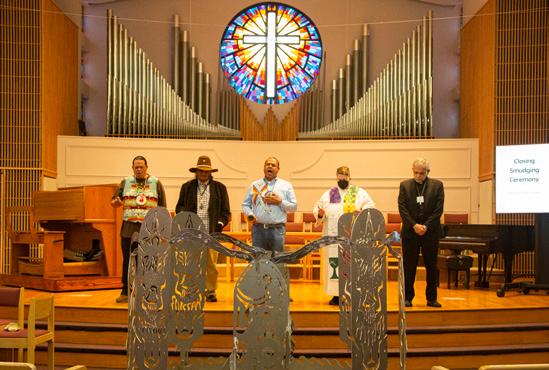
“ Cultures of gratitude must also be cultures of reciprocity. Each person, human or no, is bound to every other in a reciprocal relationship. Just as all beings have a duty to me, I have a duty to them. If an animal gives its life to feed me, I am in turn bound to support its life.”
Robin Wall Kimmerer, Braiding Sweetgrass: Indigenous Wisdom, Scientific Knowledge, and the Teachings of Plants.(Milkweed Editions, 2015)
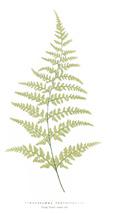
GUIDING QUESTIONS:
How are you being called to renew your relationship with nature?
How can my community best discern a feasible destination to organize a Sacred Salmon pilgrimage to a nearby water body during the Jubilee Year of Hope?
What First Nations are located close to those water ways?
Is our pilgrimage accessible to all willing participants in our community?
PRAYER
Create opportunities for personal and communal prayer to uphold Indigenous call to protect Salmon populations and their habitats.
“Let
justice roll down like waters.” (Amos 5:24)
Good day visiting pilgrims, God gives us the gifts of respect, trust, obedience, and honesty. If we lose these gifts there is no space in our heart to accept the rest of the gifts that God has for us because we ignore Jesus’ mercy, wisdom and love.
O God of all peoples, who raised up St. Kateri as a shining example of faith and humility, grant us, through her intercession, the grace to love You above all things, to care for creation with gentle respect, and to persevere in prayer even in the face of hardship. Amen.
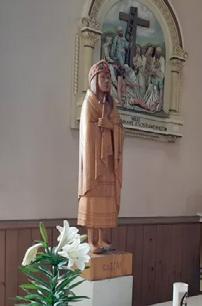
“Do not let the past stumble upon your presence. As Jesus’s living water washes away our fear and sins, put our past worries in Him and let it flow away….”
— Sanctuary of Saint Kateri Tekakwitha
• Community Stories: Spirit of the Waters - YouTube Cultural Context to encounter the First People of the Northwest. (Pictured on right)

GUIDING QUESTIONS:
How is Creation inviting your community to remember your shared belonging with Mother Nature and act to protect salmon kin?
How can we cultivate more just and right relations with crucial species like salmon for more holistic ecosystem health?
COMMUNITY ACTION
Transformation and prayer are held accountable by action. Each pilgrimage should have a call to action that is specific and direct and evolves in connection to community experience. Please see pg 9 for examples.

GUIDING QUESTIONS:
How can we respectfully support first nations by honoring and protecting salmon as kin?
What sacred salmon site is calling your community for fellowship and protection?
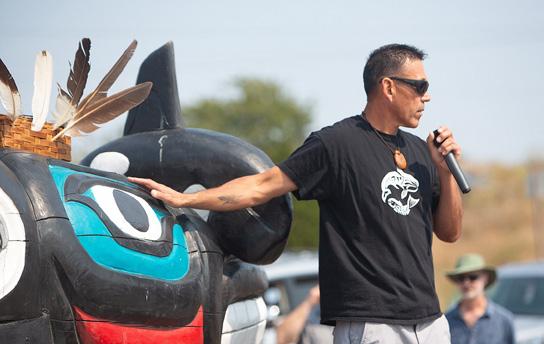
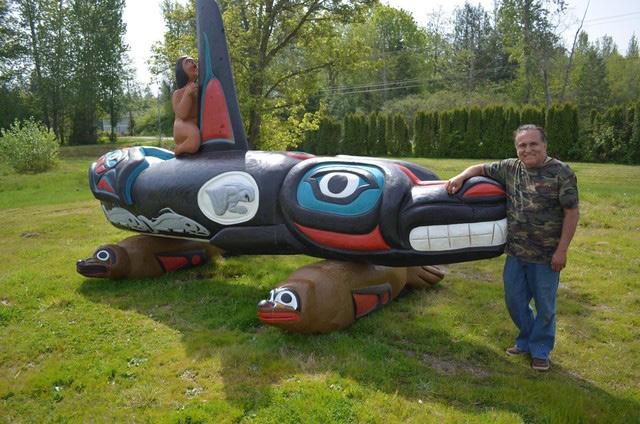

More information for Se’Si’Le here.
3. PLANNING YOUR SACRED SALMON PILGRIMAGE
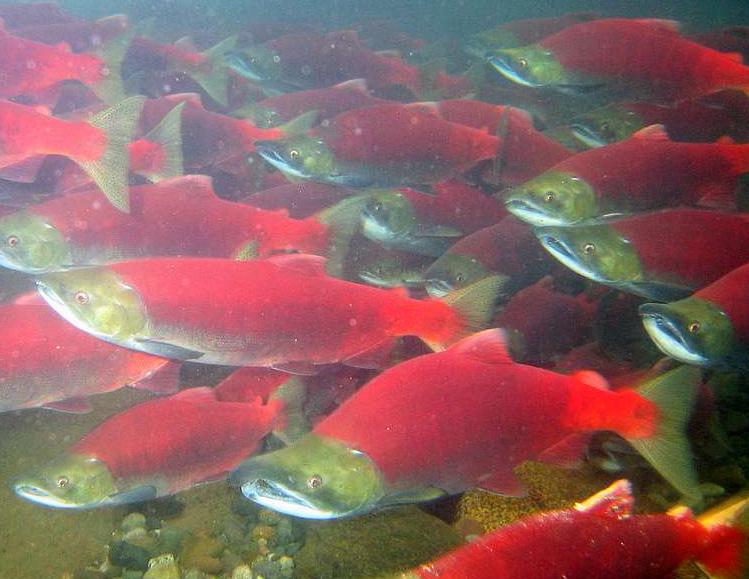
Pope Francis: Message for Lent 2025:
“Walking Together in Hope”
How do I concretely experience the hope that enables me to interpret the events of history and inspires in me a commitment to justice and fraternity to care for our common home and in such a way that no one feels excluded?
STEP BY STEP PLANNING PROCESS:
Please note that the listed options under each step below are for your consideration. You are welcome to use them as an a la carte menu. We hope you can include at least one option for each step! And yet, encourage your team to discern what works best for your community!
STEP 1: Listening to your Community
• Create a space of reflection that upholds Care for Creation and the Cry of the Poor and honors our Church’s call to continue engaging in an active synodal process that upholds all members of our Church and actively seeks authentic encounters with our neighbors (human and non human). For more info see: The Synodal Process: The Church’s Way of Proceeding
• Invite community members in your parish, school, neighborhood, other relevant organizations, tribal and nontribal allies.
To learn more about first nations nearby, please see Native-Land.ca | Our home on native land
• Share a reflection from A Matter of Spirit or Intercommunity Peace & Justice Center » Sacred Salmon Campaign and share during mass or community discussion.
• IPJC’s publication - A Matter of Spirit
◊ On Sacred Ground - 2025
◊ Right Relations - 2024
◊ Sacred Salmon - 2023
• Organize a community watch party during the Season of Care for Creation and explore together questions of discernment before the pilgrimage.
◊ Majestic Matriarchy: Honoring Our Relatives Below the Waves | Si’ Se’ Li event 2025 -recording
◊ Covenant of The Salmon People | Nez Perce produced (2023) (pictured below)
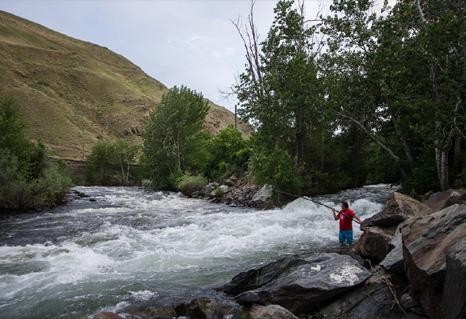
◊ The Pope, the Environmental Crisis, and Frontline Leaders | The Letter: A Message for Our Earth (2022)
◊ Lummi Fishing in the Salish Sea| Salmon People: Preserving a Way of Life | Full Film | USA (2024)
• Ideal for families:
◊ Laudato Si’ 10th Anniversary | A Global Call to Care for Our Common Home (2025) (3’ 53” min.)
◊ Vatican Video on Laudato Si‘ (2015) (6’ 18” min. multilingual) - Vatican Releases video on Pope’s Encyclical
• After community outreach event, digitally distribute toolkit to all interested community members and invite them to join pilgrimage leadership team.
• Organize an “I am Salmon” Poetry Workshop. Lead a creative writing workshop where community members develop kinship and belonging with salmon. Participants will read a poem from the perspective of Ice Harbor Dam and write their own poem from the perspective of a salmon going upstream in the Lower Snake River or in connection with your home waters. Resource for poetry workshop in the IPJC Sacred Salmon Campaign Kit
SALMON AS KIN
The resilience of the salmon life cycle inspires us to walk together in hope and deepen our relationship with salmon as kin.

GUIDING
QUESTIONS:
What aspect of salmon migration and stage of the salmon life cycle inspires your community most in cultivating resilience together?
Listen, witness, and support what local tribal members express is needed to fight for greater environmental justice.
Why are we gathering to honor Creation and indigenous communities in our region?
How is y/our community being called to walk as pilgrims of hope with and for sacred salmon survival?
How is your community listening to the water?
How are you remaining attentive to First Nation community asks and the histories of the lands and waters that sustain your communities? .
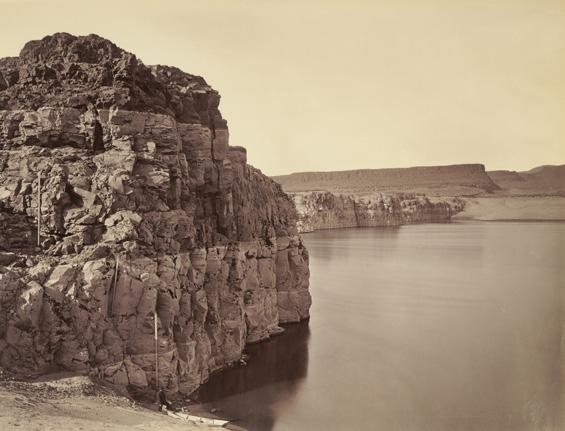
STEP 2: Build your Sacred Salmon Pilgrimage team
After community outreach event, designate leaders and distribute roles to organize Sacred Salmon pilgrimage as a community. For example, PILGRIMAGE ORGANIZING ROLES could include lead organizer/s, logistics coordinator (accessibility, food, water...), communications coordinator, and/ or partnership coordinator. . . Please note that COMMUNITY ACTION ORGANIZING ROLES could build upon pilgrimage leadership or include new relay of volunteers.
Please make sure the organizing leaders have access to the digital version of the Sacred Salmon Pilgrimage toolkit, as it contains valuable interactive links.

GUIDING QUESTIONS:
Who is willing, excited, and committed to lead this community experience?
Who are key powerful allies WITHIN your community to create the pilgrimage that should be invited to participate and support this initiative?
(eg. Care for Creation Team, community outreach coordinator, priest, school principal, religious order members...)
STEP 3: Design your pilgrimage experience!
Please note that it is important to consider accessibility when designing a pilgrimage and to accommodate the needs of all willing participants as best as possible to make sure all community members feel welcome and included.
Sacred Salmon Pilgrimage destination possibilities
• Pilgrimage to the Cedar River
Visit the Cedar River, learn about the current project to truck salmon from the Puget Sound to the mouth of the Cedar River to avoid predation in Lake Washington, pray for recovery, and reach out to local City officials to ensure salmon populations are protected. King County trail maps here.
• Pilgrimage to the Ballard Locks
Visit the Ballard locks and arrange a presentation about the locks from Washington Fish and Wildlife to
learn about preservation and challenges for salmon, witness the impact of human intervention on salmon and the natural area, pray for the continued recovery of the region and invite the community to contact local city officials to continue investing in fish passage through the system.
• Pilgrimage to Carkeek Park
Visit the beautiful and lively salmon spawning location in the Fall, learn about the recovery efforts and restoration of the region, reflect on the life cycle of salmon and its parallels to the paschal mystery, and find out how to support the continued protection of the park.
• Pilgrimage to Sammamish Lake
Visit Kokanee Salmon as they migrate from Ebright Creek to Lake Sammamish. Kokanee Salmon are non-anadromous (don’t go to the ocean) forms of Sockeye Salmon. Learn more at Lake Sammamish Kokanee – The Little Red Fish and follow #littleredfish4ever.
WHAT IS A KOKANEE SALMON?
Video made by Gunnar Bonk a student at Gibson Ek High School.
• Multi-Day – Pilgrimage to the Lower Snake and Columbia Rivers
◊ Organize a pilgrimage to one of the four lower Snake River dams Learn about the impact of the dam, visit the Reach Museum in the Tri Cities Area, pray together on the banks of the Snake or Columbia River for healing and recovery, and reach out to congressional representatives to remove the four lower snake river dams. Eg. Ice Harbor dam, Bonneville Dam...
◊ Multi-Day – Pilgrimage to the Elwha River Travel to the Elwha River to witness and see one of the most extensive and successful dam removal projects in the Pacific Northwest, pray on the banks of a healing river and witness its resilience, invite the community to take action to replicate a similar vision for the Lower Snake River dams by advocating for their removal and the promotion of the Columbia Snake River Campaign.
Your community is welcome to choose your own pilgrimage location. Here are some mapping tools.
◊ Tool #1: National Wildlife Federation: Salmon Migration: Interactive Map Illustrates Fantastic Journey in Peril
◊ Tool #2: National Wildlife Federation: Salmon Migration – A Journey to Connect us All
◊ Tool #3: Acknowledgement of current Indigenous nation presence and lands nearby: Native-Land.ca | Our home on native land
◊ Tool #4: Further Exploration of salmon spawning grounds: PHS on the Web
STEP 4: Community Action post-pilgrimage
• Community Action ideas for Catholic leaders
◊ Share the 2022 Washington Catholic Bishops Call for Plan to Care for Creation and the Common Good in the Lower Snake River Region with your community and write a letter to your archdiocese in support of regional tribes after the cancellation of the Columbia River Resilience Agreement Plan
◊ More Information: State’s bishops urge ‘holistic plan’ for Lower Snake River regionNorthwest Catholic: Read Catholic News & Stories
• Lead a Sacred Salmon Legislative Meeting: Main supporting education materials can be found here: Legislative Meeting Toolkit - Google Drive
• Two legislative orders of relevance:
◊ Executive Order 24-06 Salmon Recovery: Riparian Protection and Restoration and Advancing the Columbia Basin Restoration Initiative and Agreement (December 3, 2024)
◊ Stopping Radical Environmentalism to Generate Power for the Columbia River Basin (June 12, 2025)
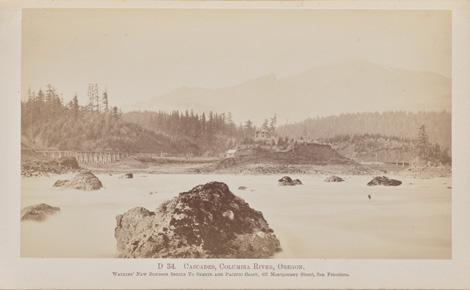
“We need to bring the salmon home.”
That’s the message Gonzaga Prep Service and Justice leaders wanted to make clear at an environmental justice town hall Wednesday in Murphy Library. As the culmination of this year’s Earth Week, “Sacred Salmon,” featured Nimiipuu (Nez Perce) tribal organizer Julian Matthews and Tanya Riordan, policy and advocacy director of Save our Wild Salmon nonprofit. Both offered their experiences and perspective to an audience of students and four candidates running for the congressional seat currently held by Cathy McMorris-Rodgers. (Sacred Salmon Town Hall | Gonzaga Preparatory School, April, 2024)
• Write letters or postcards as a group to appeal Catholic WA, OR, ID, or AK representatives to support salmon and orca protection and the breaching of the Lower Snake River Dams.
• Learn about recent Columbia Snake River Campaign updates here.
• Find sample Letters to the Governor here, courtesy of Climate Catholic Covenant.
Patty Murray, D-Wash
Maria Cantwell, D-Wash
Ed Diehl, R- Oregon
Jim Risch, R-Idaho
Mark Begich, D-Alaska
Lisa Murkowski, R-Alaska
• Write an Op-Ed or Letter to the Editor on the need to protect salmon, orca, restore your local salmon spawning location. and breach the Lower Snake River Dams. See IPJC materials here.
• Share the The Global South’s prophetic message to COP30 (July 14th, 2025)
◊ A Call for Climate Justice and the Common Home: Ecological conversion, transformation, and Resistance to False Solutions
◊ Join Laudato Si Movement chapter in your state! Meet regularly to pray and plan actions that protect God’s creation. Chapters - Laudato Si’ Movement Laudato Si’ Movement resources
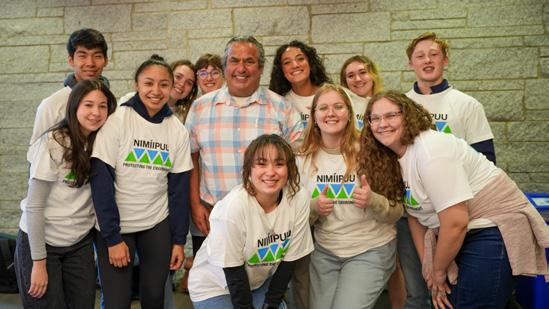
Julian Matthews of the Nimíipuu (Nez Perce)[podcast link] reminds us, we are all called to become protectors of sacred lands, waters, and creatures!
• Organize a group to attend and support the Se’Si’Le statewide event: Xaalh and the Way of the Masks: Honoring Ourselves, the Lands, Waters, and Forests September 6-20, 2025.
• Commit to supporting and sharing IPJC and tribal-led action calls for salmon protection and ecosystem regeneration as a community for a year.
◊ Check our partner organizations - conservation allies and tribal organizations - to support their ongoing calls of action: Save Our Wild SalmonTake Action, Se’Si’Le - Home, Nimiipuu|Protecting the Environment| Nez Perce
◊ Check and support IPJC’s Community Action alerts on Intercommunity Peace & Justice Center » Sacred Salmon Campaign
◊ Sign up for Intercommunity Peace & Justice Center » Sign Up for Our E-Newsletter
• Share Sacred Salmon pilgrimage learnings and salmon protection research in your parish, school, or community. See resources here.
◊ Respectfully interview tribal and nontribal elders in the community to ask about salmon presence twenty, thirty, fifty years ago and health of water/ land/air ecosystem in your neighborhood.
◊ Use community-made posters and in-person presentations and homilies to create awareness in support of the Care for Creation teaching.
• Join the Catholic Climate Covenant Encounter for Our Common Home Campaign! To stay informed about campaign and community-building events, trainings, young adult materials and engagement, webinars, resources, action alerts.
• Join the Encounter for Our Common Home Campaign! To stay informed about campaign and community-building events, trainings, young adult materials and engagement, webinars, resources, action alerts..
• Create a Sacred Salmon Art and Poetry community showcase at the parish or school in honor of the Sacred Salmon Pilgrimage to honor your community’s relationship with salmon during the Season of Creation and beyond.
• Develop a communal mural of what right relationship with Creation and Salmon could look like. Try your best to include all ages and groups.
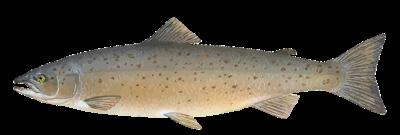
• Have your Care for Creation Team initiate and support a year-long Sacred Salmon program in connection with all grades and salmon raising and release if applicable.
• Organize school-wide support for youth to attend Northwest Jesuit Advocacy Summit in Spring 2026. See info on the 2025 event here.
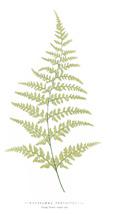
Are there any other ways your community envisions living out the call to lead community action to support the Sacred Salmon campaign after pilgrimage?
STEP 5: Share your Sacred Salmon pilgrimage of Hope and Community Action experience with your archdiocese, local Laudato Si’ Movement chapter, and religious and non-religious communities.
Please register your pilgrimage here (Be sure to mention Sacred Salmon Pilgrimage in your event title.)
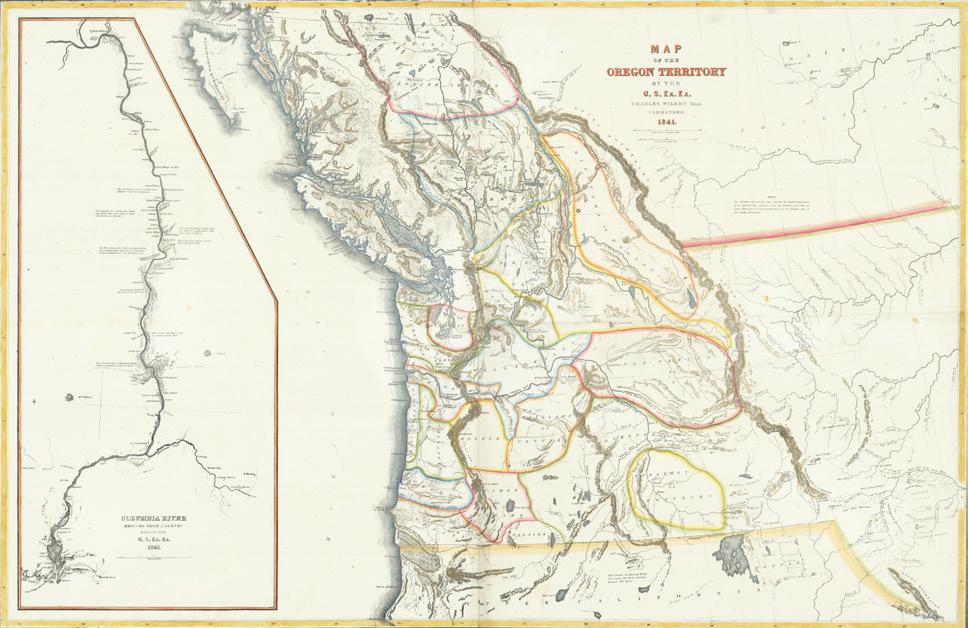
4. IPJC SACRED SALMON CAMPAIGN
PURPOSE:

The Intercommunity Peace and Justice Center (IPJC) has worked since 2023 to gather the faith community to stand alongside Indigenous communities of the Northwest. Inspired by the charism to care for our common home, we uphold and support tribal-led campaigns that protect native food sovereignty, amplify land return, and foster ecosystem restoration. We support the active decolonization of land, water, and air resources in the hope to restore and honor Indigenous wisdoms and ancestral ecological knowledge and native expertise.
VISION:
IPJC envisions creating a network of faith-based leaders that support Indigenous tribal leaders as comanagers of natural resources, per federal treaties, and supports parishioners and youth in being in just and right relationship with all of Creation. All of this is inspired and modeled according to the concrete expertise regarding salmon, ecosystem recovery, and dam removal that Indigenous communities hold, as well as a rightful sharing of the historical environmental legacy in our region.
GOALS:
1. As a covenant people, restore and protect treaty rights particularly as it relates to access to salmon and traditional fishing grounds.
2. Honestly and authentically name the harmful impact that Catholic Church and colonial settlers have had, and continue to have, on Indigenous communities including specific examination of the impact of the Doctrine of Discovery and Papal Bulls of the 16th century.
3. Amplify regional tribal voices that seek Indigenous cultural revitalization, ecosystem restoration, river pollution monitoring to ensure salmon survival, and collective respect of Native land and burial grounds alongside Lower Snake River.
4. Provide concrete actionable pathways for Catholics to live out Laudato Si’ & Laudate Deum by learning about and supporting environmental justice initiatives led by Indigenous neighbors in their region.
5. Co-design active conciliation process that invites Catholics to witness and foster localized community action that addresses Indigenous land dispossession, soil, air and water pollution and its impact on Indigenous populations, and the dismissal.
6. Pass the Columbia Basin River Initiative, which includes removal of the four Lower Snake River dams.
7. IPJC’s Sacred Salmon Campaign. Find IPJC Resources here.
5. LAUDATO SI’ AND LAUDATE DEUM
The following themes and connected topics emerge in both of Pope Francis’ encyclicals on the environment. These among others connect to this campaign informing and shaping the connections between our faith and this issue.
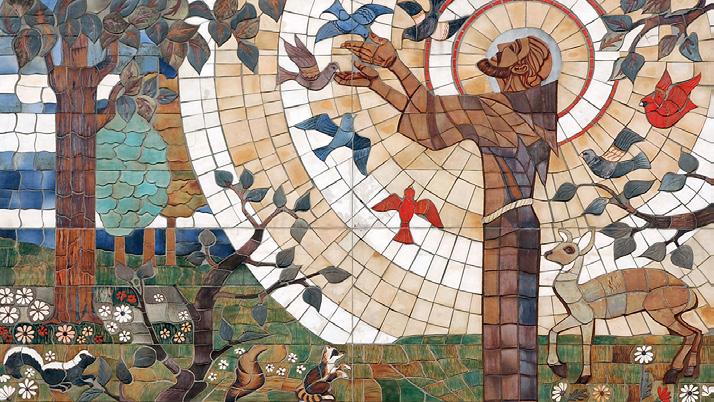
CULTURAL ERASURE DUE TO ENVIRONMENTAL DEGRADATION
Indigenous communities are inextricably related to the physical places they inhabit, and as those places are destroyed so are their culture and existence.
“ Many intensive forms of environmental exploitation and degradation not only exhaust the resources which provide local communities with their livelihood, but also undo the social structures which, for a long time, shaped cultural identity and their sense of the meaning of life and community. The disappearance of a culture can be just as serious, or even more serious, than the disappearance of a species of plant or animal.”
— Laudato Si’ 145
ENDANGERED SPECIES AND BIODIVERSITY
The extinction of many species creates great urgency, as it ultimately weakens environments and risks our livelihood.
“ In the protection of biodiversity, specialists insist on the need for particular attention to be shown to areas richer both in the number of species and in endemic, rare or less protected species. Certain places need greater protection because of their immense importance for the global ecosystem, or because they represent important water reserves and thus safeguard other forms of life.”
— Laudato Si’ 37
TECHNOCRATIC PARADIGM
There is an over-reliance on technical and marketbased solutions which threatens the survival of our common home.
“ If we approach nature and the environment without this openness to awe and wonder, if we no longer speak the language of fraternity and beauty in our relationship with the world, our attitude will be that of masters, consumers, ruthless exploiters, unable to set limits on their immediate needs. By contrast, if we feel intimately united with all that exists, then sobriety and care will well up spontaneously.”
— Laudato Si’ 11
“ We are all called upon to lift up and engage our resilience and our empathy with the hope that comes from reconnecting and working together. This is the moment and we are the ones we’ve been waiting for. We must be strong before the struggle, moving together with hope in our hearts and our minds, guided by Xa xalh Xechnging, “our sacred obligation,” to the forces that bring us together, to Mother Earth and all her children, to the Ancestors, and to all those yet unborn.
— W’tot lhem (Jay Julius), former Chairman of the Lummi Nation, a full-time fisher and father, and the Founder and President of Se’Si’Le.
Earth Day Message from Jay Julius, W’tot lhem here (Friends of the San Juans)
“ We have a responsibility to speak for those who cannot speak for themselves”
— Julian Matthews, Nimiipuu|Protecting the Environment | Nez Perce
Protecting the Sacred Salmon and Rivers: A Nimiipuu Perspective audio here!
“Land, water, and food are not mere commodities but the very basis of life and the link between these[Indigenous] peoples and nature...Ancestral heritage and [Indigenous] traditions, Pope Francis added, open up “a horizon of hope” in a challenging time. “Defending these rights,” he continued, “is not only a matter of justice but also a guarantee of a sustainable future for all.”
—The Right of Indigenous Peoples to SelfDetermination: A Path to Food Security and Food Sovereignty, The Seventh Global Meeting of the Indigenous Peoples’ Forum in Rome Feb. 10–11, 2025
• Pope Francis: Defending Indigenous rights ‘a matter of justice’ | Catholic News Agency
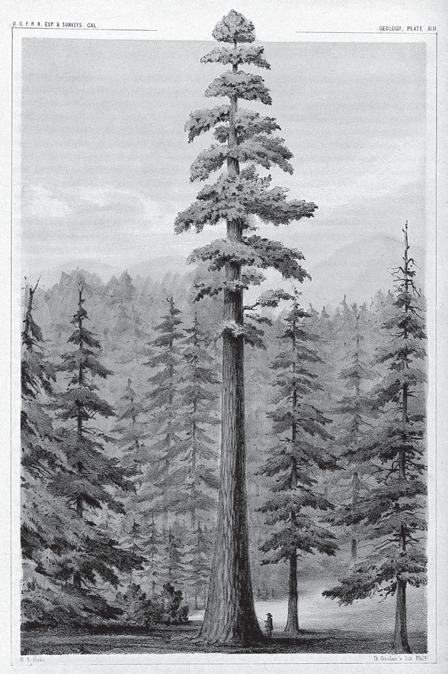
6. CATHOLIC SOCIAL TEACHING FOR SACRED SALMON PILGRIMAGES
How does our Catholic teaching inform the call to walk as pilgrims of hope with sacred salmon?
The Catholic Church’s social teaching is a rich treasure of wisdom about building a just society and living lives of holiness amid challenges of modern society. Here is the seventh of the seven principles of our Catholic tradition.
VII
Principle: Care for God’s Creation
We show our respect for the Creator by our respectful stewardship of creation. Care for the earth is not just an Earth Day slogan; it is a requirement of our faith. We are called to protect people and the planet, living our faith in relationship with all of God’s creation. This environmental challenge has fundamental moral and ethical dimensions that cannot be ignored.
Source: Environmental Justice - Justice Peace and Human Development | USCCB
Laudato Si’ – Encyclical on Care for our Common Home, May 24, 2015
Laudate Deum – Apostolic Exhortation to All the People of Good Will on the Climate Crisis, Pope Francis, October 4, 2023
Caring for Creation and the Common Good in the Lower Snake River Region – Washington State Catholic Bishops, November 3, 2022
OTHER RESOURCES CONNECTED TO SALMON RECOVERY
The Columbia River Watershed: Caring for Creation and the Common Good – An International Pastoral Letter by the Catholic Bishops of the Region, January 8, 2001
7. HISTORICAL CONTEXT AND TREATIES
“The upshot of all the preceding is this, then, that the aborigines undoubtedly had true dominion in both public and private matters, just like Christians, and that neither their princes nor private persons could be despoiled of their property on the ground of their not being true owners.”
— Francisco de Vitoria (1486-1546)
A Public Declaration to the Tribal Councils and Traditional Spiritual Leaders of the Indian and Eskimo Peoples of the Northwest – November 1987 & 1997
“The Snake River Dam Analysis” by JoDe Goudy, RedThought (2022)
Indigenous Peoples and the Right to Self-Determination | Cultural Survival (2024)
8. CATHOLIC ORGANIZATIONS
Catholic Climate Covenant
Catholic Charities - Oregon - Catholic Social Teaching Care for God’s Creation
Catholic Social Teaching | Catholic Community Services of Western Washington
Climate Action Families – Protecting the People and Planet We Love!
We’re all part of God’s Plan/et The mission of the God’s Plan(et) national awareness and engagement campaign is to encourage U.S. Catholics to care for creation and participate in the Vatican’s Laudato Si’ Action Platform (LSAP).
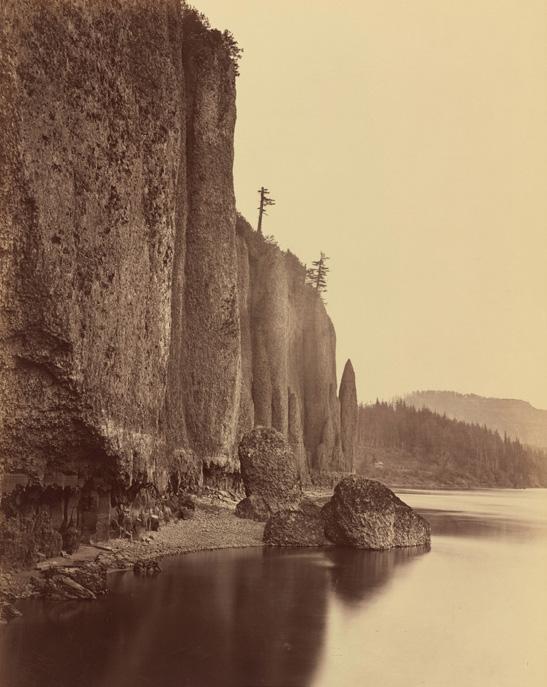
FOR MORE RESOURCES: please see our Appendix
IPJC SUPPORT
We are ready to support your team with the planning of a Sacred Salmon Pilgrimage.
Please reach out to us at ipjc@ipjc.org to let us know about your pilgrimage and if you need any support.
We would love to share your event with our IPJC community and encourage you to use Sacred Salmon Campaign images and logos for your event!
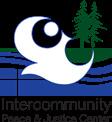
Produced by Intercommunity Peace & Justice Center (permissions to share).
1216 NE 645th St. Seattle WA 98115
ipjc@ipjc.org | ipjc.org/sacred-salmon-campaign

